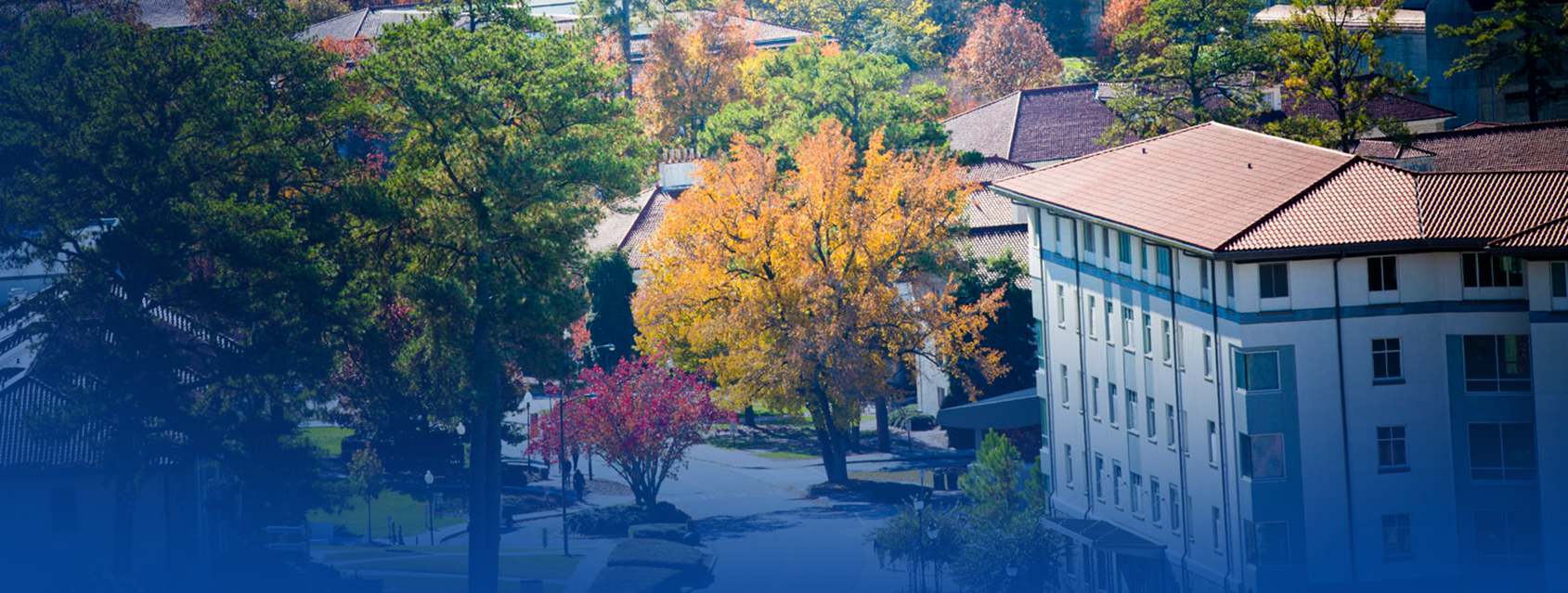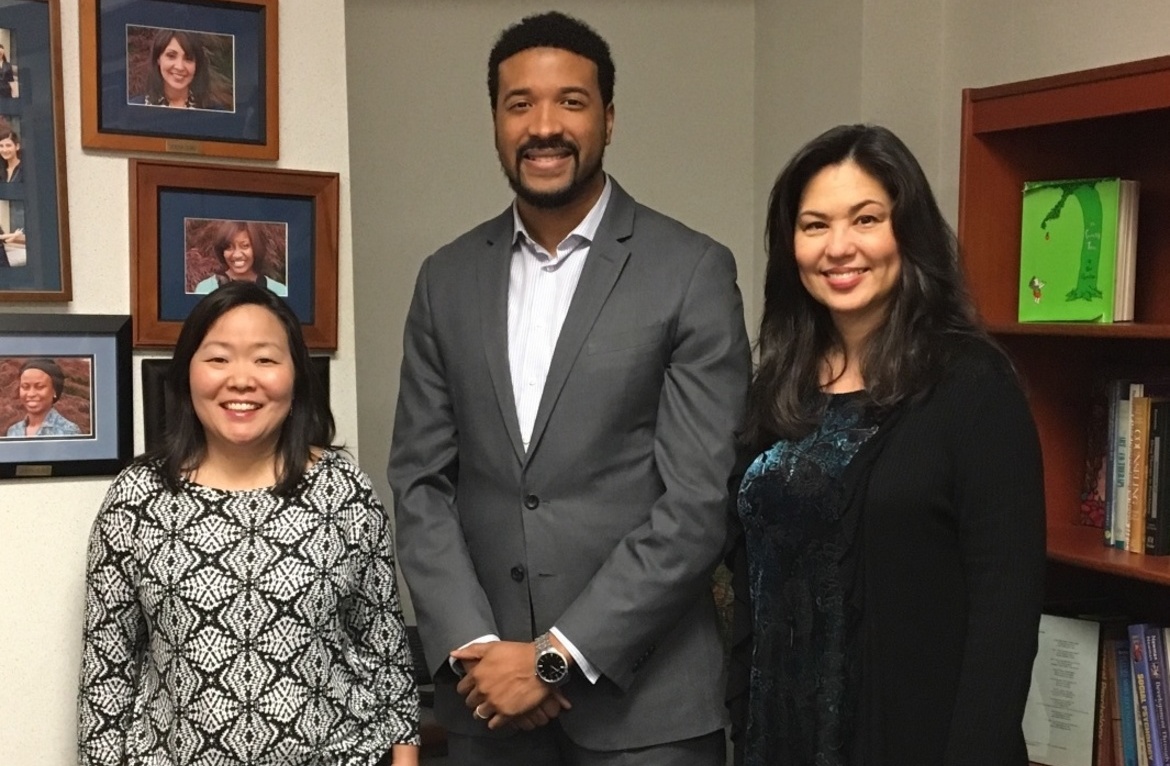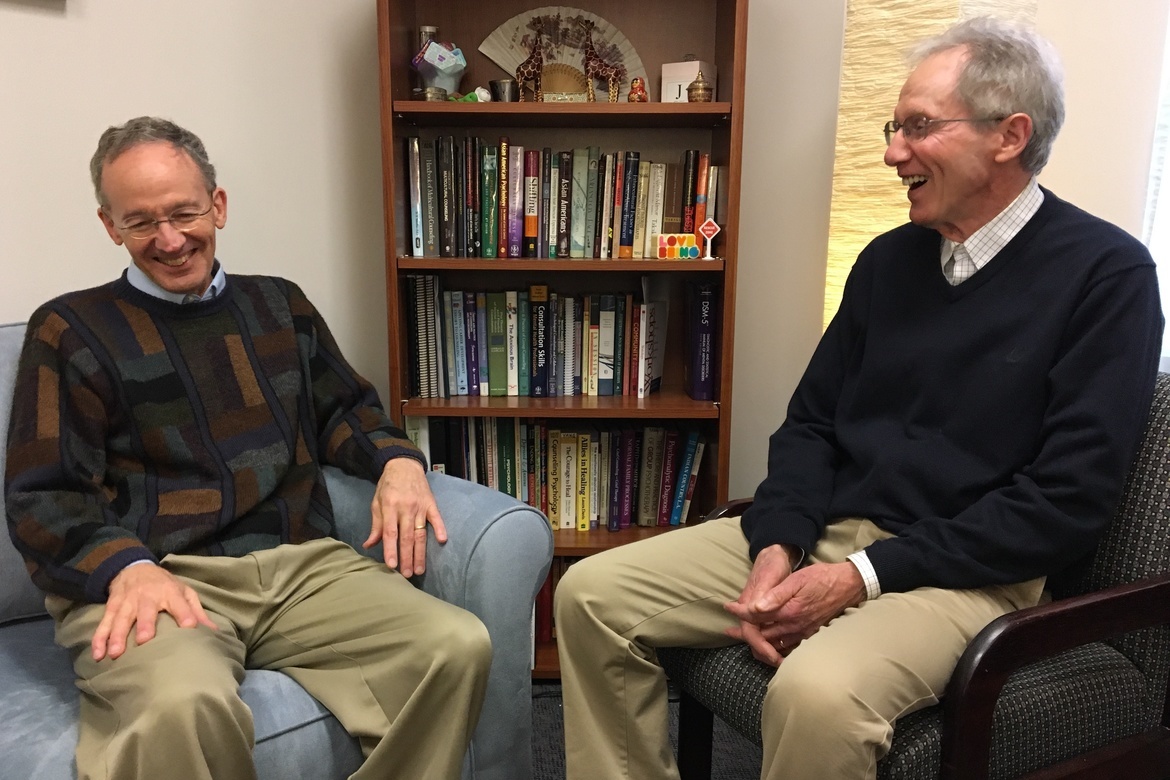
February 13, 2019
Counseling and Psychological Services continues a long history of providing Emory students with safe spaces to be heard and helped.
By Adrienne S. Harris, Contributing Writer, Campus Life
Forty years ago, when Stephen Nowicki Jr., director of clinical training in the psychology department, Susan Brown, academic dean, and Joseph Moon, dean of Campus Life at Emory’s Oxford College, got together every week for breakfast, the conversation always came back to the same topic: How to improve psychological services for students at Emory.
Back then, if students had a psychological problem, they could talk with the dean of men or dean of women, a clinical psychology graduate student, or the university psychiatrist.

Photo by JB Brown.
“There was no designated entity to see students in trouble for counseling versus therapy,” said Nowicki, who now teaches at the Goizueta Business School. “Emory wanted to be known as a world-class university, but we were behind comparable institutions in providing psychological services to our students.”
Nowicki, Brown, and Moon thought Emory could and should do better. They came up with the idea to create a helpline—staffed by undergraduate students—as a resource for those who would benefit from the listening ear of a peer. In 1979, with a $100 donation from Moon to pay for a telephone line, Nowicki and his colleagues recruited students, trained them, and launched the Emory Helpline.
Decades of growing larger to serve better
That same year, after Nowicki returned from visits to Duke, Vanderbilt, William and Mary, and Yale universities to learn about their psychological services, he got funding to establish the Emory Counseling Center, which he led for five years. Nowicki hired Mark McLeod, a clinical psychology graduate student who was completing an internship at the Health Sciences Center in Portland, Oregon, as the center’s first counselor.
Later, McLeod became the director—a position he held for 33 years—and grew the agency into what it is today. Under his leadership, the center increased staff, added services, and gained American Psychological Association accreditation for its nationally known doctoral internship program. It also added post-master’s social work and post-doctoral psychology fellowship programs.
Prior to his retirement, McLeod reported to recently retired assistant vice president and executive director of Student Health Services, Michael Huey, who was also a strong advocate for mental health, the work of the counseling center, and McLeod’s commitment to expand those services.
 Mark McLeod and Steve Nowicki. Photo by JB Brown.
Mark McLeod and Steve Nowicki. Photo by JB Brown.
“We started out pretty far behind our peer institutions in providing psychological services. When I began as director, we had five counselors and offices in a little house in the woods on the outskirts of campus,” said McLeod, now retired. “We struggled to catch up, but we did. Every year we grew. And now we have a good facility and good people.”
On February 15, the center—now known as Counseling and Psychological Services (CAPS)—celebrates its 40th anniversary.
“I am proud that four decades later, the counseling center is still a place of safety for students and one of the first places they go for help,” said Nowicki.
The mission of CAPS, a Campus Life organization, is to support the intellectual, emotional, social, spiritual, and psychological well-being of Emory students. It offers an array of free, confidential mental health services, including crisis intervention, individual and couples therapy, group counseling, a stress clinic, animal-assisted therapy, a range of outreach programs, suicide prevention initiatives, and the peer-support Helpline.
“As an agency, we are working from a social justice framework, so we really try to focus our outreach efforts on students from marginalized and underserved populations,” said Wanda Collins, assistant vice president of Campus Life and director of CAPS. “We’ve intentionally done a lot of work to be part of the community and out in spaces to reach students who may not otherwise access the center as readily.”
By design, the center’s 14-person clinical staff is diverse in race, ethnicity, gender, and sexual orientation, as well as professional expertise. The core team includes seven licensed psychologists, five licensed social workers, a suicide prevention coordinator, and a stress clinic coordinator. There are also doctoral interns, post-graduate fellows, contract therapists, administrative support staff, and two certified therapy dogs.
A seat at the table
When Collins was hired in 2015, CAPS was decoupled from student health services and became a separate department under Campus Life, with Collins serving as part of the executive leadership team in Campus Life.
“I think that’s been really important because it has allowed us to have a seat at the table,” said Collins. “With mental health such a huge issue right now on college campuses, this creates opportunities for the perspectives of professionals to be heard at top leadership levels.”
During the 2017-18 academic year, CAPS served 1,772 students—the largest number to date and 43 percent more than five years ago. The increased demand for psychological services at Emory tracks with national trends that reflect college students’ anxiety, stress, and depression related to living in today’s often uncertain world.
“Culturally, this generation’s experience of life is very different from 10 or more years ago,” said Collins. “It’s post-911 attacks, post-Virginia Tech shooting, post-economic crisis. This generation has grown up with the instant gratification of smartphones and technology. This is also the stage in life when they are asking and answering important identity questions. Add to this the stress of being in an academically rigorous, competitive environment like Emory, and it really is a lot to deal with.”
Students who call or come to the CAPS office are offered an initial assessment appointment, which is typically available within a week—however anyone in crisis gets an appointment the same day. CAPS operates under a brief therapy model, which means students can have up to seven counseling sessions per academic year. If students need longer-term therapy, CAPS refers them to other service providers in the area.
“Mental health is more a part of the conversation of this generation of students, so there is a reduction in the stigma around seeking mental health support—but that doesn’t mean the stigma is gone,” said Jane Yang 98C, CAPS’ associate director of outreach. “Many people hold identities, experiences, and values that may keep them from seeking formal mental health services.”
To overcome barriers to asking for help, CAPS routinely partners with students, faculty, and staff to bring mental health programs, many of which include an appearance by therapy dogs Beowulf and Finn, out into the campus.
CAPS’ latest initiative, launched in 2017, is Mental Health @ Emory (MH@Emory). It aims to create a more supportive and therapeutic campus environment by renarrating and deepening the community’s understanding of mental health. One goal is to help people see that much of what is defined as mental health issues are normal, expected life challenges. Another is to empower everyone—not just the professional counselors—to talk constructively and compassionately about those challenges.
“Instead of relying completely on ‘depressed’ and ‘anxious,’ which are actually quite clinical terms, if we can also talk with each other about being scared and lonely, that’s a different kind of conversation,” said Gary Glass, director of counseling and career services at Oxford College and a collaborator on MH@Emory. “Once we can name their situation differently, we can offer students different, more nuanced choices and greater decision-making power for handling their feelings.”
As CAPS continues to grow and evolve with the changing times and increasing demand for services, Collins is grateful for the legacy left by those who started it all.
“Our work at CAPS is intimate. Much of it happens behind closed doors and makes an important difference in the lives of Emory students,” she said. “We have our founders to thank for that. Their vision 40 years ago, and their care and hard work since then, have made it possible for us to do what we are doing today.”
Learn more
CAPS website: http://www.counseling.emory.edu/